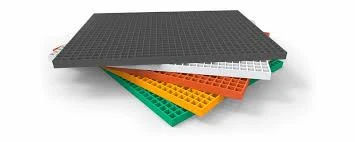
-
 Afrikaans
Afrikaans -
 Albanian
Albanian -
 Amharic
Amharic -
 Arabic
Arabic -
 Armenian
Armenian -
 Azerbaijani
Azerbaijani -
 Basque
Basque -
 Belarusian
Belarusian -
 Bengali
Bengali -
 Bosnian
Bosnian -
 Bulgarian
Bulgarian -
 Catalan
Catalan -
 Cebuano
Cebuano -
 China
China -
 China (Taiwan)
China (Taiwan) -
 Corsican
Corsican -
 Croatian
Croatian -
 Czech
Czech -
 Danish
Danish -
 Dutch
Dutch -
 English
English -
 Esperanto
Esperanto -
 Estonian
Estonian -
 Finnish
Finnish -
 French
French -
 Frisian
Frisian -
 Galician
Galician -
 Georgian
Georgian -
 German
German -
 Greek
Greek -
 Gujarati
Gujarati -
 Haitian Creole
Haitian Creole -
 hausa
hausa -
 hawaiian
hawaiian -
 Hebrew
Hebrew -
 Hindi
Hindi -
 Miao
Miao -
 Hungarian
Hungarian -
 Icelandic
Icelandic -
 igbo
igbo -
 Indonesian
Indonesian -
 irish
irish -
 Italian
Italian -
 Japanese
Japanese -
 Javanese
Javanese -
 Kannada
Kannada -
 kazakh
kazakh -
 Khmer
Khmer -
 Rwandese
Rwandese -
 Korean
Korean -
 Kurdish
Kurdish -
 Kyrgyz
Kyrgyz -
 Lao
Lao -
 Latin
Latin -
 Latvian
Latvian -
 Lithuanian
Lithuanian -
 Luxembourgish
Luxembourgish -
 Macedonian
Macedonian -
 Malgashi
Malgashi -
 Malay
Malay -
 Malayalam
Malayalam -
 Maltese
Maltese -
 Maori
Maori -
 Marathi
Marathi -
 Mongolian
Mongolian -
 Myanmar
Myanmar -
 Nepali
Nepali -
 Norwegian
Norwegian -
 Norwegian
Norwegian -
 Occitan
Occitan -
 Pashto
Pashto -
 Persian
Persian -
 Polish
Polish -
 Portuguese
Portuguese -
 Punjabi
Punjabi -
 Romanian
Romanian -
 Russian
Russian -
 Samoan
Samoan -
 Scottish Gaelic
Scottish Gaelic -
 Serbian
Serbian -
 Sesotho
Sesotho -
 Shona
Shona -
 Sindhi
Sindhi -
 Sinhala
Sinhala -
 Slovak
Slovak -
 Slovenian
Slovenian -
 Somali
Somali -
 Spanish
Spanish -
 Sundanese
Sundanese -
 Swahili
Swahili -
 Swedish
Swedish -
 Tagalog
Tagalog -
 Tajik
Tajik -
 Tamil
Tamil -
 Tatar
Tatar -
 Telugu
Telugu -
 Thai
Thai -
 Turkish
Turkish -
 Turkmen
Turkmen -
 Ukrainian
Ukrainian -
 Urdu
Urdu -
 Uighur
Uighur -
 Uzbek
Uzbek -
 Vietnamese
Vietnamese -
 Welsh
Welsh -
 Bantu
Bantu -
 Yiddish
Yiddish -
 Yoruba
Yoruba -
 Zulu
Zulu
frp products for steel smelting plant
FRP Products for Steel Smelting Plants Enhancing Efficiency and Durability
In the highly demanding environment of steel smelting plants, the integration of advanced materials is critical to ensure operational efficiency and longevity of equipment. One such material that is increasingly gaining traction in this sector is Fiber Reinforced Plastic (FRP). Known for its remarkable strength-to-weight ratio and corrosion resistance, FRP products offer substantial benefits for steel smelting plants, helping them to enhance performance while reducing maintenance costs.
Understanding FRP
Fiber Reinforced Plastic is a composite material made of a polymer matrix reinforced with fibers, typically glass, carbon, or aramid. This combination yields a material that is lightweight yet incredibly strong, with properties that can be tailored to meet specific requirements. The versatility of FRP allows it to be molded into various shapes and sizes, making it ideal for an array of applications in steel smelting facilities.
Advantages of FRP in Steel Smelting
1. Corrosion Resistance Steel smelting processes often involve exposure to harsh chemicals and high-temperature environments. Traditional materials like steel and aluminum may corrode over time, leading to structural failures and increased maintenance costs. FRP products, on the other hand, exhibit exceptional resistance to corrosive substances, extending their service life and reducing the need for frequent replacements.
2. Weight Reduction The lightweight nature of FRP makes it a preferred choice for constructing components such as tanks, piping, and support structures. This weight reduction can lead to easier handling and installation, lower transportation costs, and diminished energy consumption in operations that rely on heavy lifting and support systems.
3. Thermal Insulation FRP products have excellent thermal insulation properties, which is crucial in high-temperature environments like smelting plants. By reducing heat loss and maintaining optimal temperatures, these materials contribute to energy efficiency, ultimately lowering operational costs.
4. Electrical Insulation The non-conductive nature of FRP is another advantage in environments where electrical safety is paramount. FRP products can be used in areas where electrical insulation is needed, helping to minimize risks and ensure the safety of personnel and equipment.
5. Customizability The adaptability of FRP allows for the customization of products to fit specific applications. Whether it is for tanks, pipes, or structural components, FRP can be designed with varying thicknesses, shapes, and colors to meet the unique needs of a steel smelting plant.
frp products for steel smelting plant

Applications of FRP in Steel Smelting Plants
The versatility of FRP translates into numerous applications within steel smelting plants
- Piping Systems FRP pipes can resist the corrosive effects of molten metals and slurries, making them ideal for transporting hazardous materials safely.
- Storage Tanks Custom-designed FRP storage tanks can withstand high temperatures and corrosive chemicals, ideal for storing various substances used in the smelting process.
- Shelters and Covers FRP can be molded to create protective covers and shelters for sensitive equipment, ensuring safety from environmental factors and operational hazards.
- Platforms and Walkways The lightweight and durable nature of FRP makes it an excellent choice for constructing walkways and platforms, promoting safety while also being resistant to slips and falls.
Conclusion
As the steel smelting industry continues to evolve, the need for innovative materials like Fiber Reinforced Plastic becomes increasingly paramount. The unique properties of FRP not only enhance the efficiency and durability of various components but also contribute to a safer and more sustainable operational environment. By investing in FRP products, steel smelting plants can realize significant long-term benefits, positioning themselves for future success in a competitive market.
In summary, the integration of FRP products into steel smelting operations represents a forward-thinking approach that aligns with industry standards for safety, efficiency, and durability. As companies strive to optimize their processes and reduce costs, the adoption of advanced materials like FRP is not just an advantage but a necessary step toward a more resilient and effective steel smelting operation.









